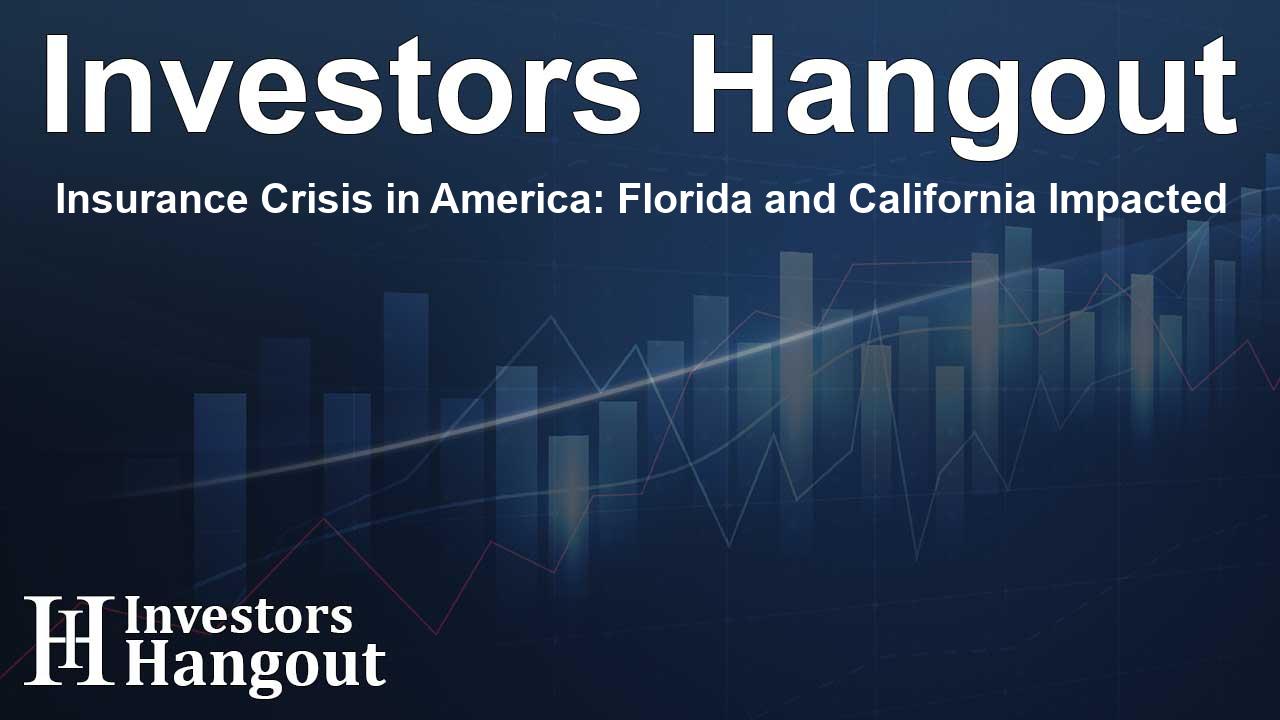Insurance Crisis in America: Florida and California Impacted

Alarming Insurance Trends in Florida and California
The insurance landscape in certain parts of the United States is undergoing drastic changes. Recent analyses depict a troubling picture for homeowners in Florida and California, where reports show that a significant number of policyholders are being dropped by their insurance companies at an unprecedented rate.
Florida stands out with the highest non-renewal rate in the nation. Among homeowners maintaining active policies, 3.35% found themselves without coverage, primarily as a consequence of severe storm damage recent years. This alarming trend marks a significant jump from just six years prior when fewer than 2% faced similar fates.
California follows closely, managing a non-renewal rate of 3.18%. This spike comes in the wake of devastating wildfires that have plagued the state. Surprisingly, California's rate of non-renewals has nearly quadrupled since 2018, showcasing a disturbing trend that leaves many homeowners scrambling for alternatives.
The Rising Tide of Policy Cancellations
Analyzing additional data reveals a broader narrative across various states. For instance, Arizona also registered a non-renewal rate of 2.97%, indicating a 3.7 times increase since 2018. Texas reported dropping 2.62% of homeowners, a figure that represents a 2.5 times escalation compared to recent years.
One of the most striking developments comes from Louisiana, where the non-renewal rate catapulted from a minimal 0.55% in 2018 to almost 3% in 2024, representing more than a fivefold increase. These statistics reflect a concerning pattern of increasing policy cancellations affecting thousands of residents.
The Impact of Weather-Related Incidents
Homeowners in disaster-prone areas often bear the brunt of these changes. Weiss Ratings, the independent agency compiling this data, underscores how severe weather patterns induce challenges for both policyholders and insurers alike. Clients find themselves at the mercy of insurers who seem increasingly reluctant to renew policies following significant claims.
"These surges in policy cancellation rates are shocking," commented Weiss Ratings founder Dr. Martin Weiss. He expressed concerns over how such actions negatively affect both the company's current operations and its future growth prospects, remarking that it's detrimental to homeowners often left with few, if any, alternatives.
Financial Context Behind Insurance Non-Renewals
Despite the rising cancellation rates, the financial health of property insurers has reportedly improved. Official filings indicate that income from underwriting and investments for these companies surged 2.6-fold over the past six years. Yet, the response from insurers remains perplexing, particularly as they struggle to justify the increased rate of policy non-renewals.
A recent report also highlights a troubling trend concerning insurer practices, with growing instances of claims denials and delays in claims payments. Homeowners expecting fair treatment find themselves navigating a landscape that appears increasingly hostile.
In a study released by the Consumer Federation of America, it was found that executive compensation for major property insurers rose by an astonishing 27% from one year to the next. This raises questions about the priorities of these companies as they continue to limit coverage for their clients.
Recommendations for Homeowners
Dr. Weiss advises homeowners to thoroughly vet insurance options before making decisions. Homeowners should consider checking lists and reviews of insurance companies to gauge how often they close claims without payment; such a metric can offer insight into the company’s treatment of its customers.
In this new era of increased risk caused by climate change and severe weather patterns, understanding policy terms and conditions becomes crucial. As the market evolves, so too do the expectations from homeowners who want reliable coverage amidst mounting challenges.
Frequently Asked Questions
What states are experiencing the highest insurance non-renewal rates?
Florida and California have reported the highest non-renewal rates in the nation, driven by recent storm damage and wildfires.
How significant are the increases in non-renewal rates since 2018?
In California, non-renewal rates nearly quadrupled since 2018, while Florida's rates rose significantly as well.
What are the contributing factors behind these cancellations?
Severe weather incidents, such as storms and wildfires, have led insurers to drop policies at an alarming rate.
How can homeowners protect themselves from sudden cancellations?
Homeowners should research and compare insurance options, paying attention to how companies handle claims to find more reliable coverage.
What trends are impacting the financial stability of insurance companies?
Despite rising non-renewal rates, insurers have seen increased income from underwriting; however, practices leading to claims denials have raised consumer concerns.
About The Author
Contact Ryan Hughes privately here. Or send an email with ATTN: Ryan Hughes as the subject to contact@investorshangout.com.
About Investors Hangout
Investors Hangout is a leading online stock forum for financial discussion and learning, offering a wide range of free tools and resources. It draws in traders of all levels, who exchange market knowledge, investigate trading tactics, and keep an eye on industry developments in real time. Featuring financial articles, stock message boards, quotes, charts, company profiles, and live news updates. Through cooperative learning and a wealth of informational resources, it helps users from novices creating their first portfolios to experts honing their techniques. Join Investors Hangout today: https://investorshangout.com/
The content of this article is based on factual, publicly available information and does not represent legal, financial, or investment advice. Investors Hangout does not offer financial advice, and the author is not a licensed financial advisor. Consult a qualified advisor before making any financial or investment decisions based on this article. This article should not be considered advice to purchase, sell, or hold any securities or other investments. If any of the material provided here is inaccurate, please contact us for corrections.
